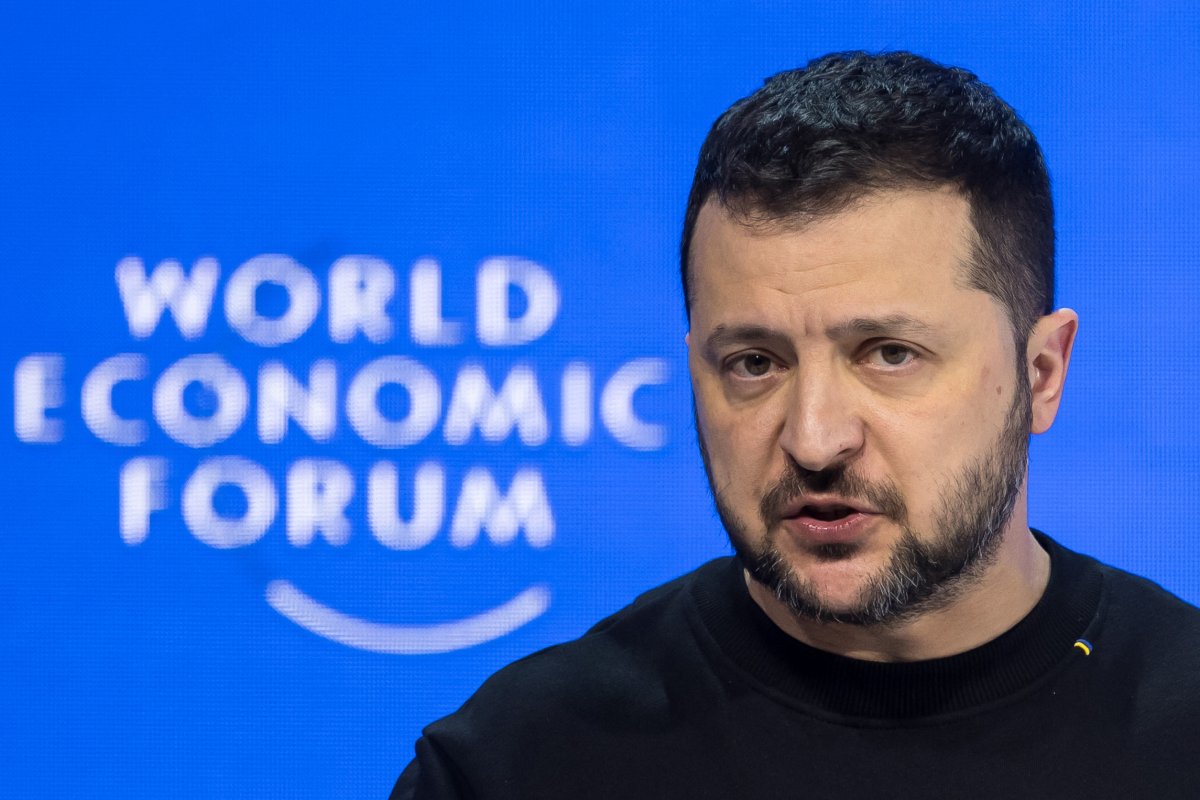Ukrainian President Volodymyr Zelensky‘s firing of his commander-in-chief Valerii Zaluzhny is fraught with risk, a former CIA director has said, amid divided opinion over the wisdom of the decision and its impact on Kyiv’s fight against Russia.
Tensions in the relationship between the pair had been reported in recent months. It intensified after Zaluzhny told U.K. publication The Economist in November, after a lack of success in Kyiv’s counteroffensive, that the war had reached a “stalemate”—an assessment that was rejected by Zelensky days later.
After much speculation, Zelensky announced on Thursday that Zaluzhny would be replaced by Oleksandr Syrsky, who has served as the Commander of Ukrainian Land Forces since 2019. The Ukrainian president said that “everyone must change and adapt to the new realities.” Newsweek emailed the Ukrainian Defense Ministry for comment on Saturday.
While there might be broad agreement domestically and among Kyiv’s allies with Zelensky’s assessment that the war’s tasks in 2022 when it started are different from those of 2024, the president’s decision is seen as having political reasons—as well as consequences.
George Beebe is a former director of Russia analysis at the CIA and ex-staff adviser to former Vice President Dick Cheney on Russian affairs from 2002 to 2004). He told Newsweek in emailed comments that the Zaluzhny decision could “erupt into a broader Ukrainian political crisis,” especially given the general’s popularity.
A poll in December by the Kyiv International Institute of Sociology (KIIS) found that Ukrainians’ trust in Zelensky had declined from 84 percent at the end of 2022 to 62 percent a year later, while 88 percent said they trusted Zaluzhny.

Ukrainian President Volodymyr Zelensky addresses the assembly at the World Economic Forum (WEF) annual meeting in Davos, Switzerland, on January 16, 2024. His announcement on February 8, 2024 that he had fired his commander-in-chief Valerii…
Ukrainian President Volodymyr Zelensky addresses the assembly at the World Economic Forum (WEF) annual meeting in Davos, Switzerland, on January 16, 2024. His announcement on February 8, 2024 that he had fired his commander-in-chief Valerii Zaluzhny has divided opinion. FABRICE COFFRINI/Getty Images
“Firing the military’s senior command in wartime is a sign of failure. It is something that states do when they are losing, not winning,” said Beebe, director of grand strategy at the Quincy Institute for Responsible Statecraft.
“Zelensky’s move is fraught with risk,” he added. “No new commander or tranche of military aid can reverse the difficult truth—Ukraine lacks the manpower, weapons and economic capacity to sustain a prolonged war of attrition against Russia.
“U.S. aid for Ukraine’s defense should continue in order to prevent a Ukrainian collapse and give Kyiv the best-possible hand at the negotiating table,” Beebe said.
Meanwhile, in an op-ed for the Carnegie Institute, Konstantin Skorkin, an independent researcher on the Donbas region, said that Zelensky was taking a major risk in replacing his commander-in-chief.
“Never before has he so blatantly defied the public consensus for the sake of his own political survival,” Skorkin wrote in the piece published Saturday.
However, U.S. Retired Vice Admiral Robert Murrett, professor of practice at Syracuse University’s Maxwell School in New York, told Newsweek that the shift in Ukrainian senior leadership “reflects a logical transition following two years of a country on a wartime footing.”
“This may be time for new approaches and positioning for adopting a long-term posture which would increase pressure on Russia, and demonstrate resolution and stamina to other international actors as well as the people of Ukraine,” Murrett said.
In his first public statement since his appointment, Syrsky said on Telegram that his priorities would be detailed planning of the actions of all military command bodies, units, and formations and solving issues with logistics and troop rotations.
Since Russia’s full-scale invasion, Syrsky has been credited with the defense of Kyiv from February to March 2022 and the counteroffensive in the summer and fall of 2022 that drove the Russians out of the Kharkiv region.
The new commander-in-chief is likely to act in line with the president’s wishes on drafting troops. “Zelensky badly wanted to shift responsibility for mobilization onto the military, and Syrsky will most likely take on the role of ‘bad cop’ in this situation,” wrote Skorkin.
Newsweek is committed to challenging conventional wisdom and finding connections in the search for common ground.
Newsweek is committed to challenging conventional wisdom and finding connections in the search for common ground.
